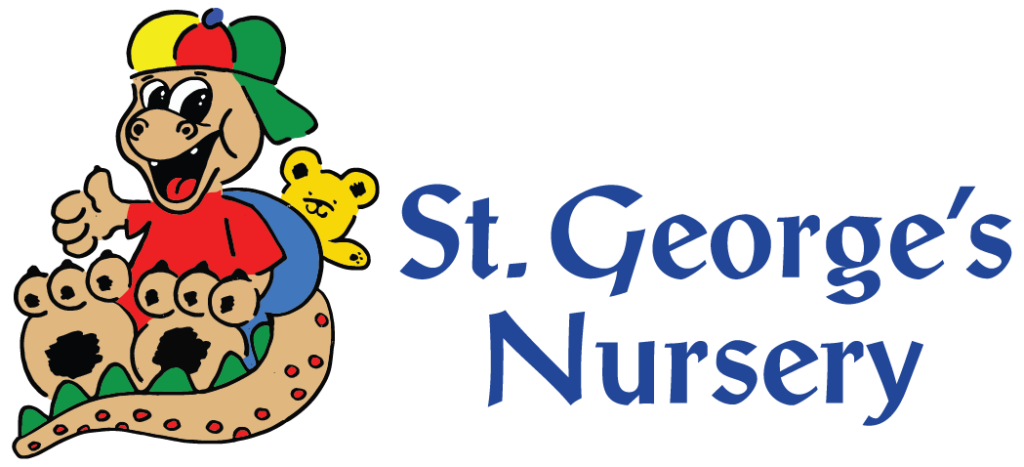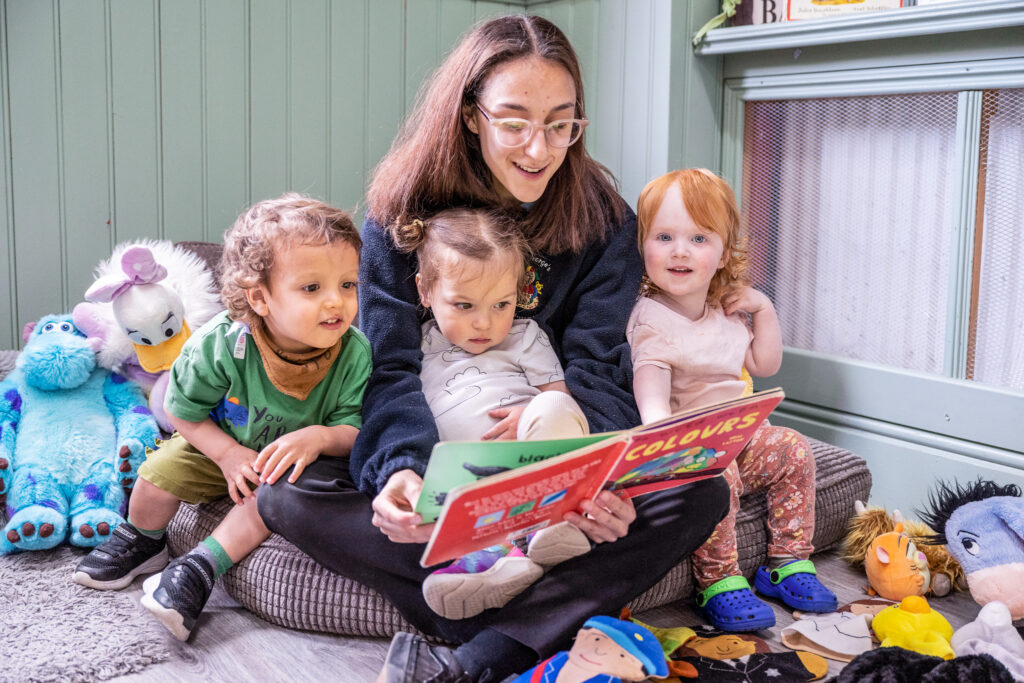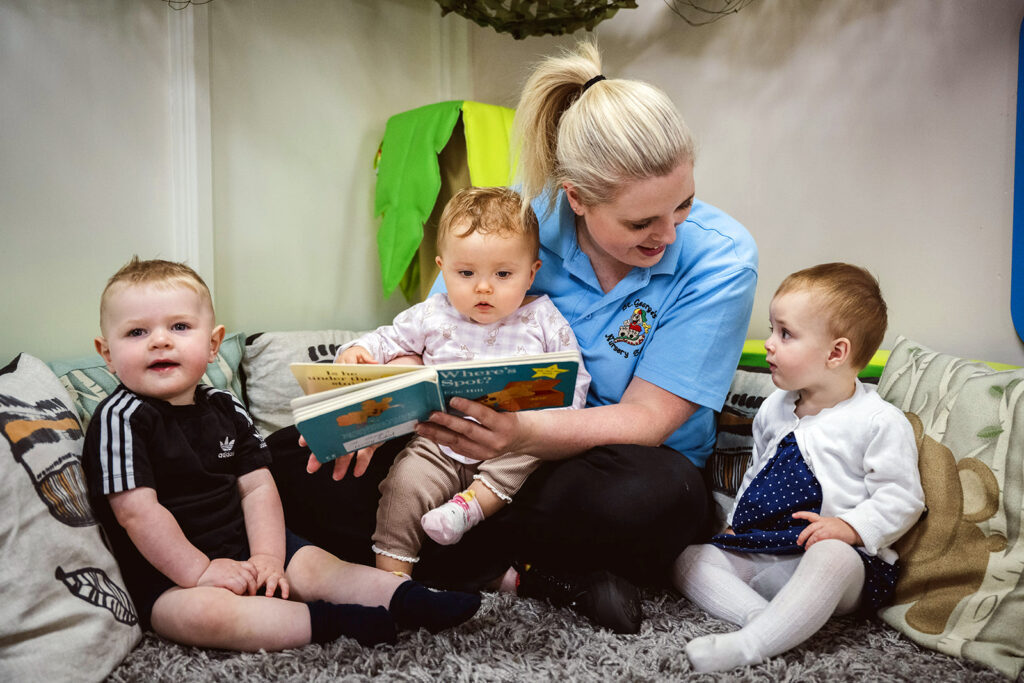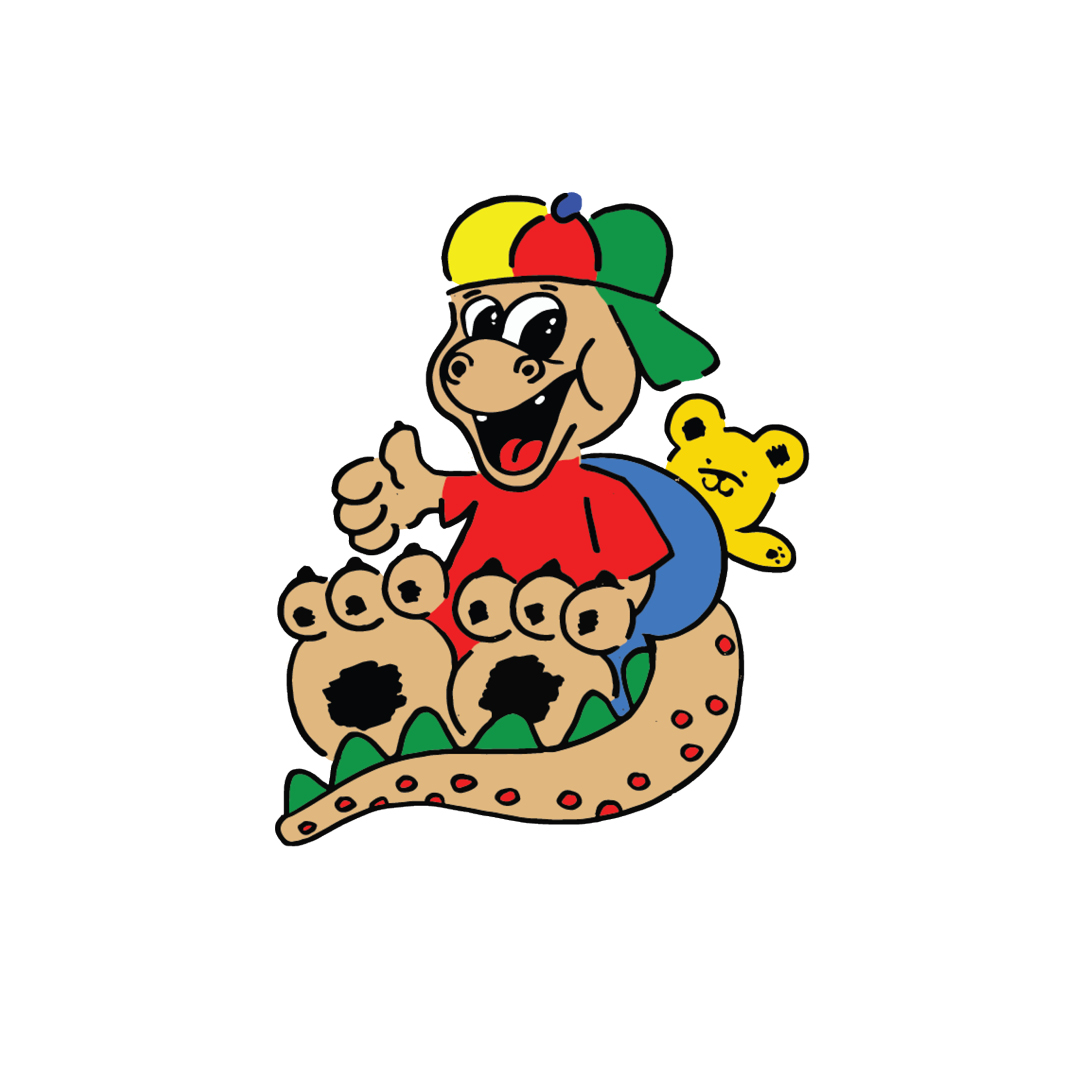When your little one begins their journey into daycare, preschool, or a day nursery, it can sometimes feel like you’ve entered a world with its own language. From funding options to learning methodologies, the terms used in childcare can be confusing for many parents. To help our St. George’s families in Leicester, Nottingham, and beyond feel confident and informed, we’ve put together this guide to explain some of the most commonly used terms in nurseries and childcare settings.
Attachment
Attachment refers to the emotional bond formed between a child and their caregiver. This connection plays a crucial role in a child’s social and emotional development, providing a foundation for secure relationships and a sense of trust.
Cultural Capital
Cultural capital refers to the knowledge, skills, and experiences that enrich a child’s understanding of the world. At our nurseries, we incorporate cultural capital through activities like exploring diverse traditions, celebrating cultural events, and encouraging curiosity about different ways of life. This helps children develop a well-rounded perspective and prepares them for their future.
Disclosure and Barring Service (DBS)
The Disclosure and Barring Service (DBS) check is a vital process that ensures individuals working with vulnerable groups, including children, are suitable for their roles. This safeguard helps protect children by preventing unsuitable individuals from entering childcare settings.
Emotional Literacy
Emotional literacy is the ability to understand and express emotions effectively, both in oneself and others. This skill involves recognising feelings, understanding their impact, and developing empathy. Encouraging emotional literacy fosters better communication and stronger relationships.
Fine Motor Skills
Fine motor skills involve the coordination of small muscles, especially in the hands and fingers, to perform activities such as writing, buttoning clothes, or using scissors. Developing these skills early lays the foundation for essential tasks like holding a pencil or tying shoelaces, supporting your child’s readiness for school.
Forest School
Forest Schools are outdoor learning environments where children engage in hands-on activities such as building dens, exploring nature, and problem-solving. This approach encourages creativity, physical development, and a connection to the natural world. It also allows children to take measured risks and build resilience in a supportive, natural setting.
Funding
Funding refers to government financial support that helps parents cover the cost of childcare. This can include options such as 15 or 30 hours of free childcare per week for eligible families. By reducing the financial burden, funding schemes make high-quality early education more accessible to all families. To find out what funding you’re eligible for, visit Childcare Choices.
Key Person
The key person is a designated member of staff who builds a close, nurturing relationship with your child and acts as a primary point of contact for you. Their role includes understanding your child’s unique needs, supporting their development, and ensuring they feel safe and secure. This approach, promoted by the Early Years Foundation Stage (EYFS), ensures that your child receives consistent care and emotional support.
Loose Parts Play
Loose parts play involves the use of small, open-ended objects that children can use creatively during play. These objects, which may be natural or man-made, allow children to explore, imagine, and create without predetermined outcomes. For instance, a stick might become a wand or a flagpole in a child’s imagination.
Observation
Observations are a key part of the EYFS framework. They involve practitioners watching and recording a child’s activities, behaviours, and interactions to understand their development and interests. These insights allow staff to create tailored learning opportunities and identify any additional support your child may need. Observations also keep parents involved by sharing milestones and progress.
Ofsted
The Office for Standards in Education, Children’s Services and Skills (Ofsted) is the regulatory body that inspects and rates childcare providers in the UK. Ofsted reports offer an independent evaluation of a nursery’s quality, helping parents make informed decisions about where to send their child.
Pedagogy
Pedagogy is the approach and methods used by educators to support learning and development. Our nurseries pride themselves on adopting a child-centred pedagogy, ensuring that every child receives a tailored educational experience. By fostering curiosity and a love for learning, we help children thrive both academically and emotionally.
Phonemes
Phonemes are the individual sounds that form words. A single phoneme may be represented by one or more letters, but it produces a single sound. For example, the word “key” has two phonemes: k-ey, while “boat” has three: b-oa-t. Learning phonemes is a fundamental step in developing reading and language skills.
Play-Based Learning
Play-based learning uses play as a foundation for teaching and exploration. Whether it’s through imaginative role play, building blocks, or sensory activities, children develop key skills such as problem-solving, teamwork, and creativity in a fun, engaging way.
Schema
Schemas are repeated patterns of behaviour that children exhibit as they explore and learn. For instance, a child might repeatedly transport items from one place to another or arrange objects in specific patterns. Recognising these behaviours helps educators design meaningful activities that align with each child’s developmental stage and interests.
Self-Regulation
Self-regulation refers to a child’s ability to recognise and manage their emotions and behaviours. This essential skill involves understanding what causes emotions and making conscious choices about how to respond. Supporting self-regulation helps children navigate social interactions and cope with challenges effectively.
SENCO
A Special Educational Needs Coordinator (SENCO) ensures that children with additional needs receive the support and resources they require. Each of our nurseries in Leicester and Nottingham has a dedicated SENCO who works closely with families and staff to create inclusive learning environments tailored to individual children’s needs.
Sensory Play
Sensory play involves activities that engage a child’s senses, such as touch, smell, sight, taste, and hearing. These activities support cognitive development, encourage creativity, and help children process and understand the world around them. Examples include playing with sand, water, or textured materials.
By understanding these key terms, parents can feel more confident navigating their child’s early education journey. If you have any questions or want to learn more about how we support your child’s development, don’t hesitate to reach out to us at St. George’s Nursery.
If there are any childcare-related words or terms that you’re unsure of, please don’t hesitate to email us at enquiries@stgeorgesnursery.com. We’re here to help!




